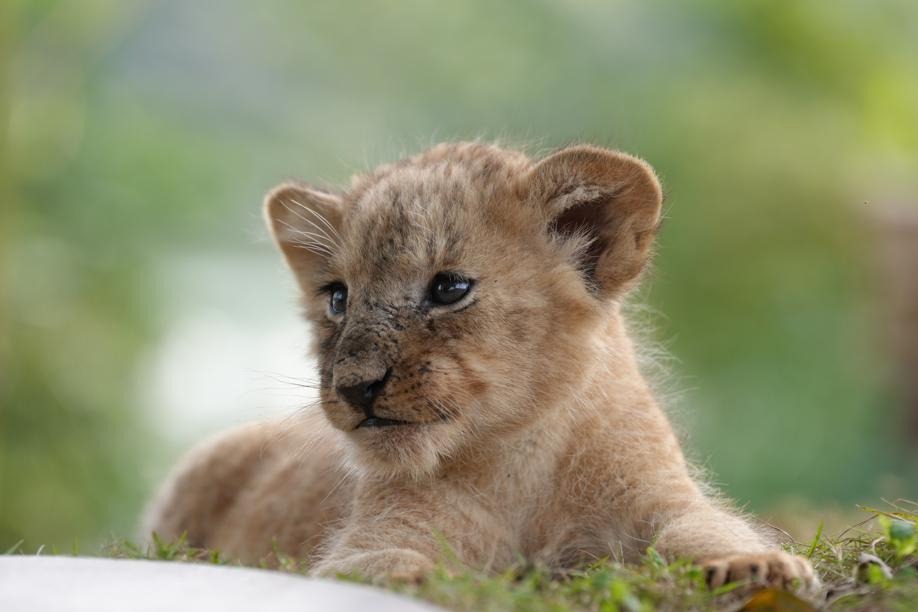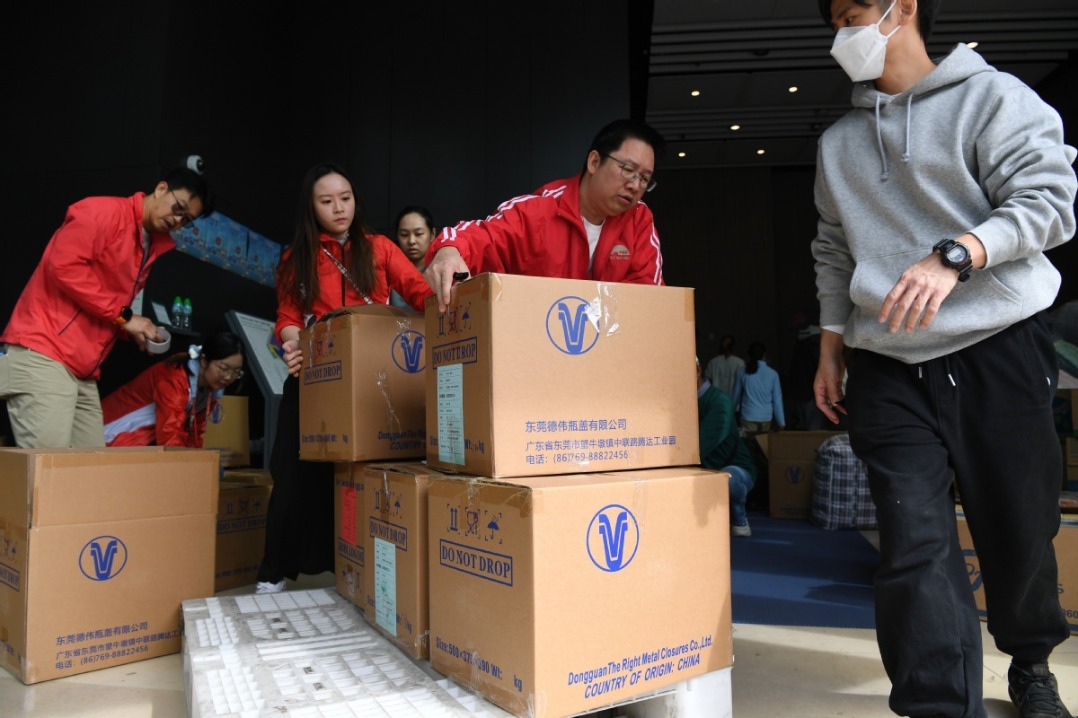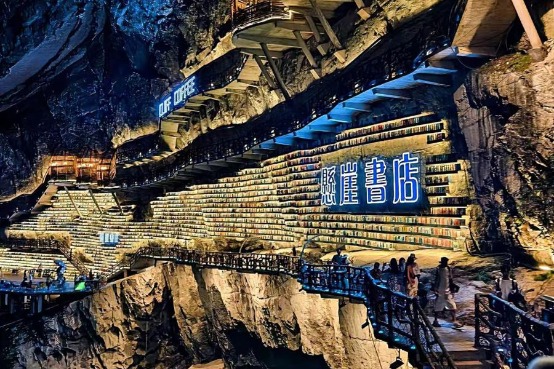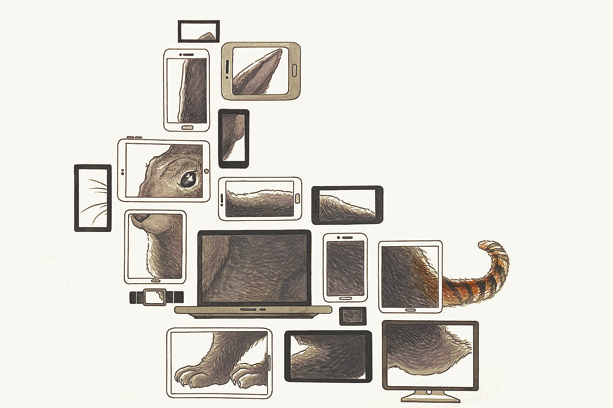Ties help bolster heritage protection
Sino-Egyptian team makes new finds at ancient temple site

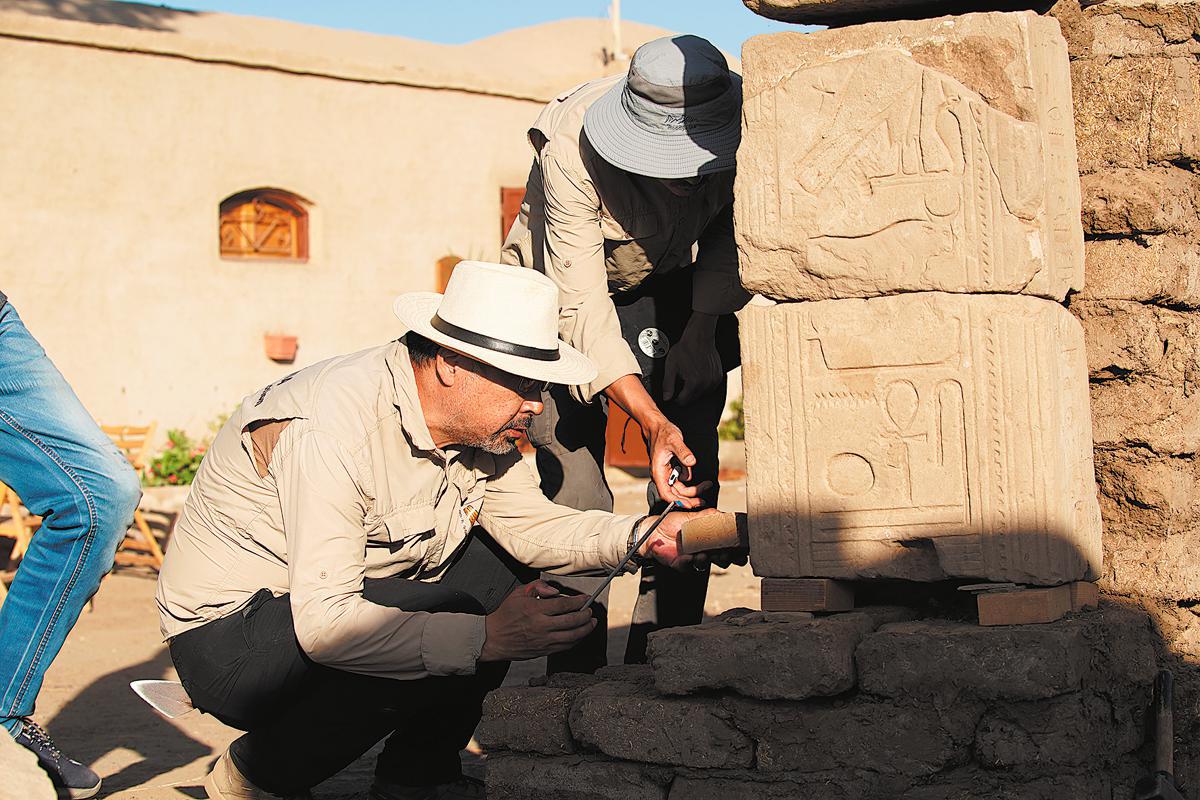
Xi visited the temple and said that as two ancient countries with rich civilizations, China and Egypt should intensify people-to-people exchanges and deepen friendship between the two peoples for common development and prosperity.
On different occasions, Xi has emphasized the important role of archaeology in promoting people-to-people exchanges and cooperation.
In March 2023, President Xi proposed the Global Civilization Initiative, which entails respecting the diversity of civilizations and promoting exchanges and mutual learning between different civilizations.
Following the visit in 2016, in October 2018, a cooperation agreement was signed between the Chinese Academy of Social Sciences and Egypt's Ministry of Tourism and Antiquities to jointly excavate the Temple of Montu site in Luxor. This was the first time that Chinese archaeologists have participated in an archaeological excavation in Egypt, according to Jia Xiaobing, a researcher at the Chinese Academy of Social Sciences and head of the Chinese team in the joint mission.
The joint archaeological team chose the Karnak Temple Complex as the site for excavation because it was one of the most important religious centers in ancient Egypt, and archaeological excavation at the Temple of Montu, a core area of the complex, can help people have a better understanding of Egyptian civilization and history, Jia said.
"Both China and Egypt have long histories of over 5,000 years, and the two countries have great potential for cooperation in archaeology to explore the origins of human civilization and the protection of cultural relics," he said.
Gao Wei, a member of the joint team and an archaeologist from the Chinese Academy of Social Sciences, said that Chinese technology and equipment have contributed to the success of the joint excavation.
For instance, using special equipment, the team was able to survey the whole area of the excavation site accurately and rebuild the Temple of Montu digitally to lay the basis for further research and improved protection of the temple.
Khaled Helmy, supervisor of the Karnak antiquities area, applauded the Chinese team's contribution to the excavation of the Temple of Montu.
"Finally we have Chinese working with us," he said, adding that previously most of the archaeologists working in Egypt were from European countries such as France and Spain. "It is interesting, because in my entire life I had never seen a Chinese archaeologist working here in Egypt until the arrival of this team.
"I think this is very beautiful work here. The Chinese are good at technology and they share with us their experience, and the nice combination makes the joint team a very powerful team."
Following the joint archaeology team, more Chinese organizations have expressed interest in cooperation with Egypt in archaeology, said Abdelghaffar Wagdy, director-general of Luxor's Antiquities.
Some organizations, such as the Shanghai Museum, have approached him, and they may start various cooperation projects such as joint excavation and documentation and restoration of monuments in Luxor and other parts of Egypt, he said.
In a milestone move in cultural exchanges between China and Egypt, more than 780 artifacts sourced from seven renowned Egyptian museums made their debut in July last year at the Shanghai Museum. Hailed as the largest exhibition of ancient Egyptian artifacts ever held outside their native country, more than 95 percent of these artifacts were being displayed in Asia for the first time.
In addition to Egypt, Chinese archaeologists have been more actively engaged in recent years with cooperation projects in other countries, such as India, Pakistan, Romania and Uzbekistan, said Jia, head of the Chinese team. "With the improving strength of archaeology in China, we will make further steps in international cooperation in the future, so Chinese scholars will make a bigger contribution to the research and interpretation of civilizations of the whole world."
wangxiaodong@chinadaily.com.cn
- Macao SAR govt donates $3.85m for fire rescue, reconstruction in Hong Kong
- Consolation payment of HK$200,000 to be granted to Hong Kong fire victims' family members
- Cultural adventures in Confucius' hometown
- Xiong'an prioritizes aerospace information and satellite internet
- Huairou science cluster strengthens global research cooperation in Beijing
- Union earmarks 8 million yuan for Hong Kong fire relief


















